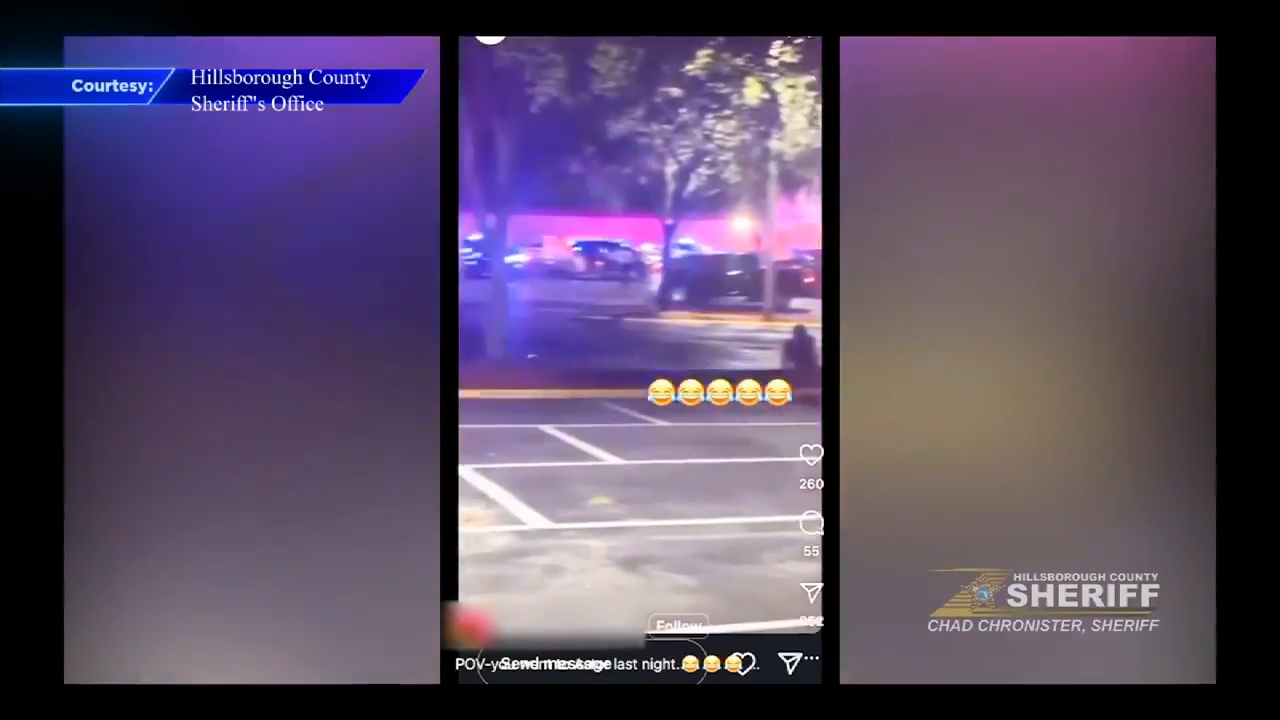Georgia
Top GOP Georgia lawmakers flex muscle in latest school voucher push • Georgia Recorder

An expansion to Georgia’s school voucher program is getting another shot this year after passing the House Education Committee on party lines Wednesday.
The latest form of the bill would allow parents to accept $6,500 to pull their children out of a public school with low performance metrics and enroll them in private school or teach them at home. Expanding vouchers has been a dream of conservatives in Georgia for a while now, who say a free market approach benefits students who are not well served by their local public school district.
That conservative priority came close to becoming reality last year when a voucher plan passed the state Senate, but it failed when a handful of House Republicans joined nearly all Democrats in voting against it. Opponents say vouchers transfer money from school districts in need of more funding and send it to private enterprises that are not accountable to public scrutiny, and that $6,500 does not cover tuition at reputable private schools, so the vouchers will only act as a discount to families that can already afford it.
“This does not empower parents at all to choose where their children go to school,” said Lisa Morgan, president of the Georgia Association of Educators. “It empowers private schools to make those choices. Private schools are not required in any sense to accept a student who has one of these vouchers. The private school still can discriminate on the basis of disability. The private school can still discriminate on any number of characteristics of the student. The parents are not empowered here. The private schools have a choice, and that’s what we need everyone to understand.”
The bill’s chances of becoming law appear higher this year with the support of the House’s highest-ranked member, Speaker Jon Burns, who made an appearance at Wednesday’s committee meeting to boost the bill.
Burns said Wednesday’s meeting was his first time at an Education Committee, and he made it clear he wants the bill to move forward.
“I would like for our House to send a clear signal that we will not let our children continue to be trapped in a failing school, that we’re taking a stand, give the parents of Georgia better options, and we are unlocking doors to the future for the children across this state,” he said.
“I hope when y ‘all’s discussion finishes, this committee will make a decision to move this bill forward,” he added.
Gov. Brian Kemp has also shown strong support for vouchers. Kemp told reporters Tuesday that he has been “patiently awaiting the House’s work” on the bill. The governor pressed lawmakers to pass a school voucher bill earlier this session in his State of the State address, saying then that “I believe we have run out of ‘next years’” to get it done.
“It’s my hope that we’ll get that done this year, and yes, we will be aggressively pushing for that once we know what the House’s posture’s going to be,” Kemp said Tuesday.
Another top Republican, Speaker Pro Tem Jan Jones, presented the bill to the committee with many changes over last year’s.
The bill would make teacher pay raises approved over the past few years permanent. It would allow public schools to use state capital construction dollars to build or renovate Pre-K facilities.
It creates a new body called the Georgia Education Savings Authority to administer school voucher programs, and, similar to a bill that passed the Senate last month, it creates rules for students to transfer between public school districts.
It still applies to students zoned into the lowest-performing 25% of schools, but Jones said she added a provision giving priority to students whose parents earn less than 400% of the federal poverty line, or $120,000 a year for a family of four in 2024.
Jones also added a cap to the program of 1% of the cost of the Quality Basic Education formula used to determine the state’s school funding share, equaling more than $100 million. Education accounts for about a third of the state’s $30 billion-plus
annual budget.
Speaking to the Recorder after the vote, Jones said she’s quite confident the House will pass the bill.
Why?
“20 years of vote counting,” she said with a laugh.
Republicans on the committee were effusive in their praise of the bill, including Atlanta Rep. Mesha Mainor, who switched parties last year after she faced heavy criticism for backing vouchers.
“I loved the bill last year, I love it now,” she said. “It meets the needs of so many different families.”
Democrats were more circumspect. Powder Springs Rep. David Wilkerson said they had little time to review the 39-page document.
“While the majority party, as the speaker alluded to, may have had 350 days actually to review this bill, we’ve had probably 35 minutes,” he said.
Democrats proposed two amendments, one to require private schools that receive state money to accept all candidates and one to require that all teachers in participating schools be professionally certified. The committee voted against the amendments on a party line basis.
Voucher supporters say the plan would not harm public school budgets. That’s because schools get money both from the state and local taxes. Supporters say the $6,500 would cancel out the state share of funds, but schools would still collect local taxes for students who take advantage of the program.
Opponents say that doesn’t add up because schools would be out $6,500 for each student, but they can’t lower the salary of a teacher whose class size decreases, and fewer students doesn’t translate to less cost to heat or cool a building or transport children to and from the school.
A poll commissioned by the Georgia Budget and Policy Institute and University of Georgia School of Public and International Affairs Survey Research Center suggests Georgia voters and parents aren’t wild about vouchers.
Pollsters asked registered Georgia voters how the state should support students in underperforming schools, giving them the options to give parents $6,500 to pay for private school tuition, provide schools with more state support or increase choice options like dual enrollment or charter schools.
A plurality of voters, 43.7% said schools should get more state support, 29.4% said more school choice options and 14.8% preferred the $6,500 vouchers.
Voucher support increased somewhat when pollsters asked respondents with school-aged children which policy would be best for their family. Among parents, 22.6% said $6,500 vouchers would be best for them, 39.8% said they want more state support, and 31% favor increased choice options.
“>

Georgia
OnPolitics: Trump and Biden’s debate is in Atlanta, Georgia. Here’s why that matters

Hey OnPolitics readers! After it appeared voters wouldn’t get the chance to see the Democratic and Republican presidential candidates square off this year, President Joe Biden and former President Donald Trump agreed to two debates last week.
The first debate will take place June 27 in Atlanta − welcome news for the city, which was one of three finalists bidding to host the 2024 Democratic National Convention, USA TODAY’s Melissa Cruz reported. It ultimately lost out to Chicago, but it wasn’t because of the lack of political drama in Georgia.
The debate’s location has history for Trump and will likely give him and Biden plenty to spar over.
❓What is Trump’s history with Fulton County, Georgia? The debate will be held at CNN’s studios, nestled in the center of Fulton County, which overlaps with Atlanta. The studios are less than a mile from the State Farm Arena, which served as a ballot processing site during the 2020 election. State Farm Arena quickly became the subject of conspiracy theories about illicit votes spread by Trump and his associates on social media in the hours following the election.
Prep for the polls: See who is running for president and compare where they stand on key issues in our Voter Guide
Prep for the polls: See who is running for president and compare where they stand on key issues in our Voter Guide
🏢Fulton County courthouse: After an investigation by the Fulton County District Attorney’s Office, Trump became the first former president to be indicted on felony charges in Georgia. He and 18 allies were charged with trying to interfere with the 2020 presidential election in Georgia after pressuring state officials to overturn the results.
🎯Georgia’s potential as a swing state: Biden was certified as the first Democrat to win Georgia in almost three decades, defeating Trump by nearly 12,000 votes. Georgia will remain a crucial swing state for the candidates in the 2024 election. Both Trump and Biden have made multiple stops in the Peach State during their reelection campaigns, showing how vital these votes are to the candidates.
Read more: The June 27 Biden-Trump debate will be in Atlanta, a city rich with political drama
Stay in the know on politics: Sign up for the OnPolitics newsletter
Georgia
Georgia Lottery compliance inspector arrested by GBI

ROCKDALE COUNTY, Ga. – An employee of the Georgia Lottery Corporation was recently arrested by the Georgia Bureau of Investigation.
Michael Kessler, 62, was employed as a compliance inspector.
Georgia Lottery reportedly received allegations that Kessler was accepting bribes from store owners and asked the GBI to investigate immediately.
On May 13, the GBI executed a search warrant of Kessler’s home in Rockedale County.
Kessler was booked into the Rockdale County Jail and then taken to the Henry County Jail.
This investigation is active and ongoing. The Georgia Lottery has been working with the GBI to provide any support needed for the investigation. Anyone with information is encouraged to contact the GBI Office of Special Investigations and Commercial Gambling Unit at 404-270-8491. Anonymous tips can also be submitted by calling 1-800-597-TIPS (8477), online at https://gbi.georgia.gov/submit-tips-online, or by downloading the See Something, Send Something mobile app.
Georgia
Georgia Statute of Limitations Not Automatically Tolled in Negligent Security Cases

Insurers covering property in Georgia could be on the hook for personal injuries occurring on the premises if the property owners and property managers do not fulfill their duty to exercise ordinary care in keeping their premises and approaches safe, pursuant to the state’s premises liability law, O.C.G.A. § 51-3-1. In 2023, the Georgia Supreme Court ruled in Georgia CVS Pharmacy, LLC v. Carmichael that this duty extends to exercising ordinary care to protect invitees from reasonably foreseeable and preventable criminal acts.
For personal injury claims, the statute of limitations in Georgia is two years. The two-year statute of limitations is measured from the date of injury, and a lawsuit filed after the expiration of the statute of limitations is subject to dismissal.
However, in negligent security cases, sometimes the statute of limitations is extended if there is a criminal prosecution. O.C.G.A. § 9-3-99, the statute that governs the tolling of limitations for tort actions while criminal prosecution is pending, provides in full:
The running of the period of limitations with respect to any cause of action in tort that may be brought by the victim of an alleged crime which arises out of the facts and circumstances relating to the commission of such alleged crime committed in this state shall be tolled from the date of the commission of the alleged crime or the act giving rise to such action in tort until the prosecution of such crime or act has become final or otherwise terminated, provided that such time does not exceed six years, except as otherwise provided in Code Section 9-3-33.1.
In short, if there is a criminal prosecution related to the underlying criminal act that forms the basis of a plaintiff’s lawsuit, the statute of limitations can have up to an additional six years added, meaning that a plaintiff could file their lawsuit as late as eight years after the actual incident occurred.
However, the tolling of the statute of limitations is not absolute. According to case law, a plaintiff who seeks to take advantage of the statute of limitations tolling bears the burden of establishing that they are entitled to such tolling.
Which Plaintiffs are Entitled to Tolling?
In determining whether a plaintiff is entitled to tolling of the statute of limitations, a claim analyst can check to see if the following facts are true:
- The underlying crime that forms the basis of the plaintiff’s lawsuit was charged by law enforcement.
- If the victim was an adult when the crime happened, the underlying crime occurred no more than eight years before the complaint was filed.
- If the victim was a minor when the crime happened, the complaint either was filed not more than two years after they turned 18, or if the criminal prosecution is still pending, was filed not more than two years plus the remaining time of the criminal investigation, not to exceed an additional six years after they turn 18.
- The time between the final resolution of the criminal prosecution and the filing of the complaint is no more than two years.
- The plaintiff is not the one charged with the crime.
- The plaintiff is not a family member of the victim of the crime bringing a wrongful death claim.
- The plaintiff did not engage in mutual combat.
If all of the foregoing statements are not true, a plaintiff’s claim might not be entitled to tolling under the statute of limitations and could be subject to dismissal.
Why Is This Significant?
To be entitled to tolling of the statute of limitations, a plaintiff must demonstrate that there was a criminal prosecution and the prosecution is either still pending or ended so recently that the statute of limitations did not expire prior to the filing of the lawsuit, and that the plaintiff meets the definition of a victim under the statute. Accordingly, the plaintiff must be the actual person injured or the estate of the person injured, and the plaintiff cannot have been charged with the alleged crime or have been engaged in mutual combat.
The application of this rule is of particular interest in cases where there is a potential defense based on the plaintiff engaging in mutual combat. A plaintiff who engaged in mutual combat is also not a victim under the statute O.C.G.A. § 17-14-2(b), which provides in pertinent part that a “‘[v]ictim’ shall not include any person who is concerned in the commission of such unlawful act.” O.C.G.A. § 16-2-20 has been interpreted to define those “concerned in the commission of an unlawful act” to include individuals engaged in or assisting in acts of mutual combat.
A motion for summary judgment on a statute of limitations defense still requires issues of disputed fact to be viewed in the light most favorable to the nonmovant. However, a plaintiff may not survive summary judgment merely on speculation or the contents of their pleadings. Where a plaintiff wishes to take advantage of statute of limitations tolling and there is a legitimate mutual combat defense, the plaintiff must present some evidence that they did not engage in mutual combat. This burden can be almost impossible for an estate to satisfy, as the estate was not present at the time of the incident and generally lacks first-hand knowledge of precisely what happened.
Being aware of when the statute of limitations is tolled and when it is not tolled may assist in dismissing many claims that plaintiffs might assume are tolled.
John “Jack” McCall is a civil defense attorney at Swift, Currie, McGhee & Hiers LLP in Atlanta, Georgia. His practice focuses on the defense of premises liability claims, including cases involving slip and falls, defective construction, elevator malfunction and negligent security.
Read more on the Carmichael case and other negligent security/premises liability cases.
Topics
Georgia
The most important insurance news,in your inbox every business day.
Get the insurance industry’s trusted newsletter
-

 News1 week ago
News1 week agoSkeletal remains found almost 40 years ago identified as woman who disappeared in 1968
-

 World1 week ago
World1 week agoIndia Lok Sabha election 2024 Phase 4: Who votes and what’s at stake?
-

 World1 week ago
World1 week agoUkraine’s military chief admits ‘difficult situation’ in Kharkiv region
-

 Movie Reviews1 week ago
Movie Reviews1 week agoAavesham Movie Review
-

 World1 week ago
World1 week agoCatalans vote in crucial regional election for the separatist movement
-

 News1 week ago
News1 week agoTrump, Reciting Songs And Praising Cannibals, Draws Yawns And Raises Eyebrows
-

 Movie Reviews1 week ago
Movie Reviews1 week agoUnfrosted Movie Review: A sweet origins film which borders on the saccharine
-

 Politics1 week ago
Politics1 week agoNorth Dakota gov, former presidential candidate Doug Burgum front and center at Trump New Jersey rally




















